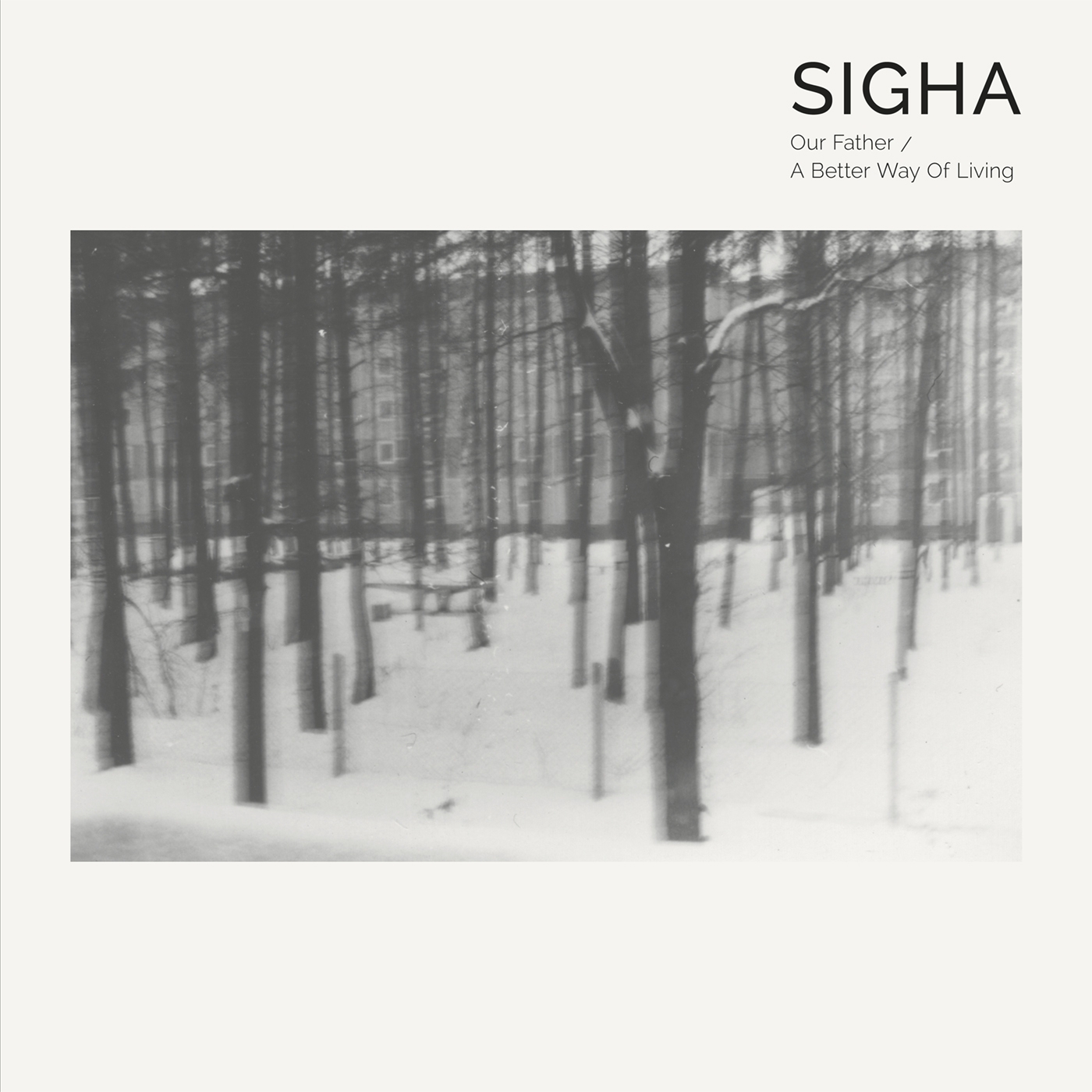Q&A: Sigha Announces Debut Release on Token
'Our Father / A Better Way Of Living' is scheduled for October 16 release.

For many years, Token has been an almost exclusive platform for the music of Inigo Kennedy, Ø [Phase] and Ctrls. The Belgian label has, however, remained on point by putting out formidable productions by Rich Oddie & Ancient Methods’ Eschaton project, German powerhouse Rødhåd and Spanish heavyweights Oscar Mulero and Christian Wünsch as Spherical Coordinates, to some intercontinental fare by Xhin and Go Hiyama.
Token, an iron clad operation continuously manufacturing unyielding techno, has always, deep within its impenetrable shell, had a soft spot for British techno. And following a reissue of Mark Broom’s “Two”, and welcoming Surgeon to its fold with the thunderous Fixed Action Pattern 12”, the Belgian label seeks out some fresh UK blood by inviting Sigha (a.k.a. James Shaw) to debut on the label with a stylistically sleek and suitably booming 12”, Our Father / A Better Way Of Living.
Sigha’s Token debut chalks up another milestone for the Berlin-based Englishman, not only because his name is now up there with the likes of the aforementioned, but Our Father / A Better Way Of Living provides Sigha with his first release away from a label that Shaw’s not intrinsically related to. Prior to this it’s been Scuba’s Hotflush, Shifted’s Avian, James Ruskin’s Blueprint and Shaw’s own Our Circula Sound that have unleashed his productions, and Sigha now steps up to deliver Token a linear 12” full of cosmic flavour and warehouse attitudes that judiciously falls between the sonic aesthetics of Inigo Kennedy’s twinkling melancholia and the interlocking kick drums and basslines of Ø [Phase].
Ahead of the EP’s October 16 release, XLR8R sat down with Sigha to learn more about the release.
So this is your first release on Token. How do you find your personal style to blend with the label?
I didn’t write the tracks with Token specifically in mind but once they were finished the fit seemed like a really obvious one. I’ve known Kris for a long time and I’ve been a big fan of the label for years, so I sent them over. He was into what he heard and we locked the whole thing down. All in all it’s probably the smoothest release I’ve ever been involved with.
You tend to be inspired by other visual arts when making music. Were you inspired by anything in particular for this release?
The two tracks on this EP were actually written years apart. “A Better Way Of Living” is at least two years old. I always felt it was a strong track but I was struggling to place it with other material. And then when I wrote “Our Father”, I started to think that they could both sit well on an EP so I added some elements to “A Better Way”, and then re-mixed it slightly to pull the two tracks into line.
Given the amount of time between the tracks I guess it’s difficult to pick a clear influence across the EP. I certainly leaned heavily on the things I often draw from, faith and religion in particular. I’m always fascinated by the parallels between communal worship and the club experience, but I can’t narrow it down to something more specific.
How has your work on Hotflush, OCS and Avian brought you to where you are today musically?
I suppose it all forms some sort of narrative, but I always think it’s a slightly schizophrenic one. I kind of feel my personal trajectory as an artist is defined by the records that never came out. I make so much music that just sits on my hard drive, and often have to be pretty much forced into doing anything with it. Not because I don’t want to release material, but I guess I’m always over thinking the issue. I have a very strong idea of what it is I’m looking to achieve with each release, and more often than not, the result ends up somewhere slightly different. Sometimes only a little, sometimes a lot, and not better or worse, just different, but that’s enough to kick off all sorts of self doubt. Coupled with the fact by that point I’ve probably lost interest thanks to a short attention span and moved on to the next project. There’ll be a whole series of recordings that will never see the light of day.
I’ve been very lucky with the labels I’ve worked with over the years. For the most part they’ve been very understanding and gently cajoled rather than pushed me into releases. Everyone’s different and I suspect my attitude towards the whole thing isn’t actually that unusual, so a good label will know how to handle an artist.
I guess this is the reason I’m more interested in working with labels who want to build close relationships with their artists. It feels like this way of working is much more likely to produce the best results on both sides.

